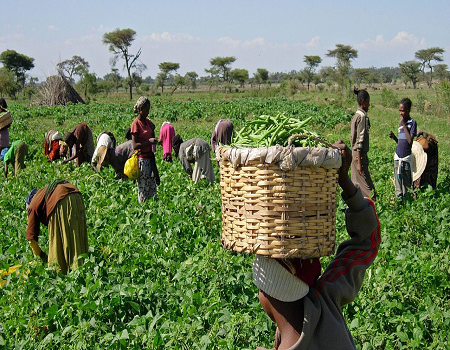The Federal Ministry of Water Resources has released a damning data on open defecation in the nation’s capital city, Abuja.
It said no fewer than 50 percent of FCT residents defecate openly due to the challenge of non-availability of toilets in public places.
The ministry’s Director, Water Quality Control and Sanitation, Emmanuel Awe, disclosed this at the Water Supply and Sanitation Collaborative Council (WSSCC) Meeting with Head Teachers of Primary Schools in the FCT.
According to him, the data from the National Bureau of Statistics (NBS) in collaboration with UNICEF, had conducted the Water, Sanitation and Hygiene (WASH) NORM survey in Nigeria to collect the latest information on improved water access.
“The data also showed that no fewer than 47 million Nigerians are involved in open defecation, and poor sanitation and hygiene practices.’’
He noted that available data showed that the North Central part of the country has the largest population of open defecation practice, calling for collective action to halt this narrative.
He said the meeting was apt and in line with the current efforts of the ministry to scale up access to water and sanitation in the county. He said the data also showed that young persons, including school children who spent one-quarter of their time in the school environment, ought to have access to toilets if open defecation practice can stop.
“It is very sad from available data from WASH Norms that the north central part of the country has the largest population of open defecation practices, Abuja is part of it.”
It is worthy to note that we are all affected by open defecation practice one way or the other, even if you don’t practice it, your driver, people around do it, so, we must all rise up to change the culture of open defecation.”
The director said that efforts of the Federal Government to end open defecation practice includes the inauguration of the Open Defecation Free Roadmap by 2025, and the “Clean Nigeria, Use a Toilet” Campaign.
He said that this would emphasise behavioural change for people to build, use their toilets and efficient application of resources toward the improvement of access to WASH services in Nigeria.
Earlier, the WASH Ambassador, Ms Ebele Okeke, noted that sanitation and hygiene were critical and central to the health of the children, saying it was key to social, economic development of the country.
She said that the meeting was a call to action to the need for safe drinking water, basic sanitation and hygiene practices, stressing that no fewer than 50 percent of schools lack improved sanitation facilities.
“It is clear that the challenges posed by sanitation and hygiene in schools can only be successfully addressed through the collaborative efforts of the parents and teachers of the children.
“It is therefore important that we collectively work towards providing focus and direction for the implementation of hygiene practices for the school environment.”
NAN










